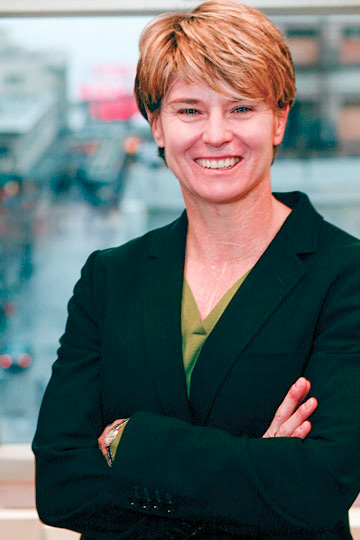“You can’t change the past. You can only change the path you are on.” Ramona Pierson
April 1984 – El Toro, California: Ramona Pierson took her dog for a run after work. As they jogged across an intersection a drunk driver, who sped through the light, hit them. The dog was killed instantly. The 22-year-old Marine was caught in the vehicle wheel well and gravely injured.
When the paramedics arrived at the scene, they assumed the young woman would be dead upon arrival at the hospital. The car bumper had ripped open her throat and chest, exposing her aorta and she was quickly bleeding to death.
Ramona Pierson’s father died of a heart attack when she was 12 years old. She was abandoned by her alcoholic mother and mostly on her own. At age 16, with the assistance of a school guidance counselor and the aid of a Marine Corps scholarship, the young math prodigy enrolled at the University of California at Berkeley. Two years later, Pierson joined the Marine Corps and following basic training was assigned to the base at El Toro, California, designing computer algorithms for fighter squadrons.
On the afternoon of the accident, Pierson made it to the hospital and a team of doctors saved her life despite massive injuries to her face, head, chest and legs. After two months in a coma, the hospital gave up on Pierson regaining consciousness. They moved her to a V.A. hospital. After being shuttled to a second V.A. hospital, Pierson eventually wound up at the National Jewish Medical Center Nursing Home in Denver, Colorado, still unconscious.
The patients and staff at National Jewish refused to give up on Pierson’s hopeless situation. She became their personal rehab project. More than 18 months after the accident, Pierson finally awakened from her coma. She weighed 64 pounds, was blind and unable to speak. It took three years for her to relearn walking and talking.
Four years after the accident, Pierson left the nursing home, got a seeing-eye dog and enrolled at a local community college. She earned a bachelor’s degree in psychology from Fort Lewis College in Colorado, then her master’s degree in education from the University of San Francisco.
In 1995, after 11 years of using a cane and guide dog, Pierson underwent a corneal transplant and regained the sight in her left eye. Three years later, Pierson received a Ph.D. in Neuroscience and Psychology from Stanford University. She joined the Stanford staff researching effects of brain trauma injuries in soldiers returning from the Middle East.
In 2008, Pierson started SynapticMash, an education software company, which she sold for $10 million to a British Company, Promethean World, three years later. In 2012 Pierson started, Declara, another educational software company. The company provided intelligent social learning platforms for governments, educational institutions, and private companies all over the world. Declara contracted with Australia to enhance the teaching capability of its 280,000 teachers.
In 2015, President Barack Obama honored Pierson in a White House ceremony for high tech entrepreneurs. “A lot of people would have been broken by Ramona’s experience,” the President commented. “While she was at the nursing home, nobody could have imagined that she would one day be a significant tech entrepreneur who was honored at the White House.” He concluded, “You never know who is going to have the next big idea or what path will lead them there.”
Today, 62-year-old Ramona Pierson is the head of Data Innovation for PricewaterhouseCoopers. She leads the project to determine the next generation of computers and the use of artificial intelligence. Ramona enjoys rock climbing and is a master’s world-class competitor in cycling. Over the past 35 years, she has had more than 50 surgeries to her face, chest, and legs.

Very inspirational story. She had a lot of grit.
Wow!
Once a Marine always a Marine!
Semper Fi